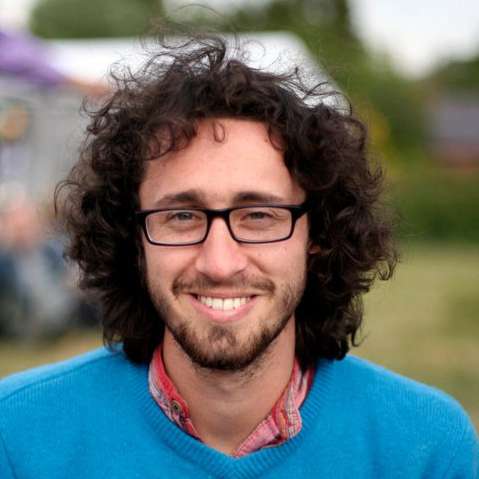According to the Orchestra of the Age of Enlightenment, “Not all orchestras are the same”. I’m not sure who doubts this rather obvious statement; but I’m certain I’m not alone in thinking the OAE to be a unique ensemble, and not just for the eccentricity of its name. Once again, this elite group of period instrumentalists delighted a St George’s audience, proving how alive and kicking Baroque music can be. Led and directed by the indefatigable Kati Debretzeni, and joined by British bass Matthew Rose, the OAE rejuvenated works by both Vivaldi and Telemann with their usual blend of originality, wit and sheer excellence.
Telemann’s Ouverture Burlesque opened the concert, the orchestra’s stately sound reverberating with satisfying warmth and fullness. Telemann imaginatively named the following movements after commedia dell’arte characters Scaramouche, Harlequin and Colombine, although I didn’t detect any particularly striking characterisations in the music, the rapid playfulness of the acrobatic servant Harelquin aside. The piece set a lively, jolly, humorous tone for a concert that was to prove exceptionally vibrant, though not without its darker, tragic moments.
Spring, from Vivaldi’s Four Seasons, was all levity and joy, however. The first movement’s fantastic birdsong interplay between soloist Debretzeni and lead violinists Alison Bury and Clare Salaman was startlingly augmented by some covert technology from back-row players, courtesy of iPhone apps and other bird-noise-making contraptions. Whilst this ran the risk of gimmickry, I found it a delightful addition, and particularly amusing when a rogue contraption decided to tweet along in the tutti section, too. In the Largo, Debretzeni’s violin sang out over a remarkably ethereal texture in the violins, punctuated throughout by steady-handed viola interjections. Spring freshness emanated from the ensuing Pastorale, and though the solo sections could perhaps have been marginally tighter, the relished suspensions and satisfying antiphony and chord progressions in the tutti sections were perfectly radiant. A brilliantly simple, beautifully constructed improvised cadence brought Spring to its fulfilment, but by its ending it felt as though spring itself had just begun.
Matthew Rose then joined the players on stage for two Vivaldi arias, “Se il cor guerriero” from Tito Manlio and “Gelido in ogni vena” from Il Farnace. The dramatic opening of the first was matched by the wonderful richness of Rose’s bass, and although his head was too stuck in the score to communicate a great deal, his tremendous volume meant that the orchestra could play with gusto, resulting in a performance of enormous energy. The following aria, in which the dread at the tragic repercussions of the protagonist Farnace’s actions makes his own blood “freeze in each vein”, was the emotional climax of the night. The extraordinary built-up discord with which the music begins vividly depicts this congelation; the falling scalic figures passed around in the violins are like sad icicles; and Rose’s long, tortured melismas and the tragically persistent orchestral quavers cut right to the heart. It was nothing less than bone-chilling (one up from blood, I reckon).
The cold atmosphere encroached on the following work, and so much the better, for it was with the teeth-chattering Winter that the first half ended. Again, this was an astonishing performance that really brought out the weirdness of the piece in all its frozen vividness, and Debretzeni’s amazing physicality, imagination and bow skill, along with her unbelievable dexterity, were simply transfixing.
The lesser-known concerti of Autumn and Summer provided the bookends of the second half, and a cantata about a dead canary provided the meat in the seasonal sandwich. Debretzeni pointed out, in her charming introduction to Autumn , that this is the wine- and cider-making season, and her playing caricatured a drunken peasant, stumbling around then falling asleep, before being awoken by a hunting party. The more inebriated moments, however, swayed too far from the continuo’s support, and the result was, I felt, musically unsuccessful.
Telemann’s Kanarien Kantata is a wildly ridiculous piece in which the bass grieves the death – by munching – of his beloved songbird. Sung in (very liberal) English translation to underline its silliness, Rose’s mock seriousness was utterly hilarious to behold, and soon most of the orchestra as well as the audience, were having to suppress their giggles. The death lament of the last movement fed beautifully into the dirge-like opening of Summer, a stark depiction of the oppressively searing Venetian heat, and powerfully shimmering heat-waves evaporating into the ether. A plaintive, songlike Adagio capitulated into a tempestuous final movement, and amidst the stormy orchestral sound there were more fireworks from Debretzeni, bringing the concert to a jubilant end.
A scintillating performance that oozed vivacity, innovation and brilliance, this is undoubtedly to be one of my concerts of 2013. I wouldn’t want to make any rash comments about orchestras, but I’m certain that not all Four Seasons are the same.


